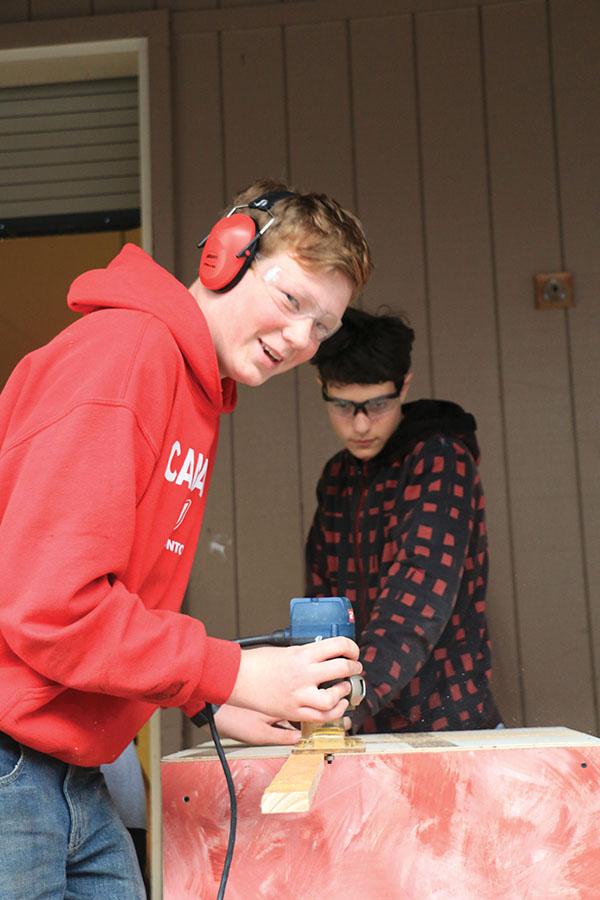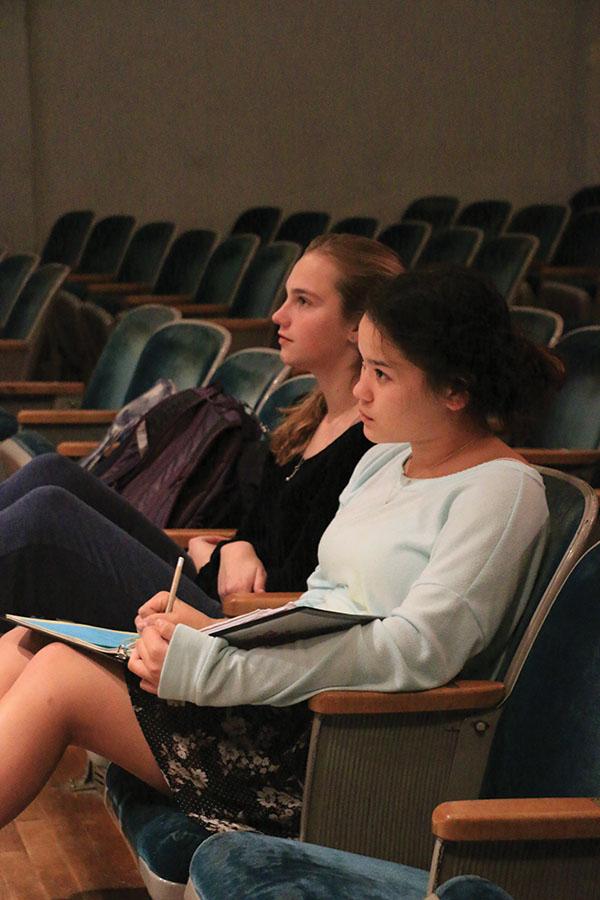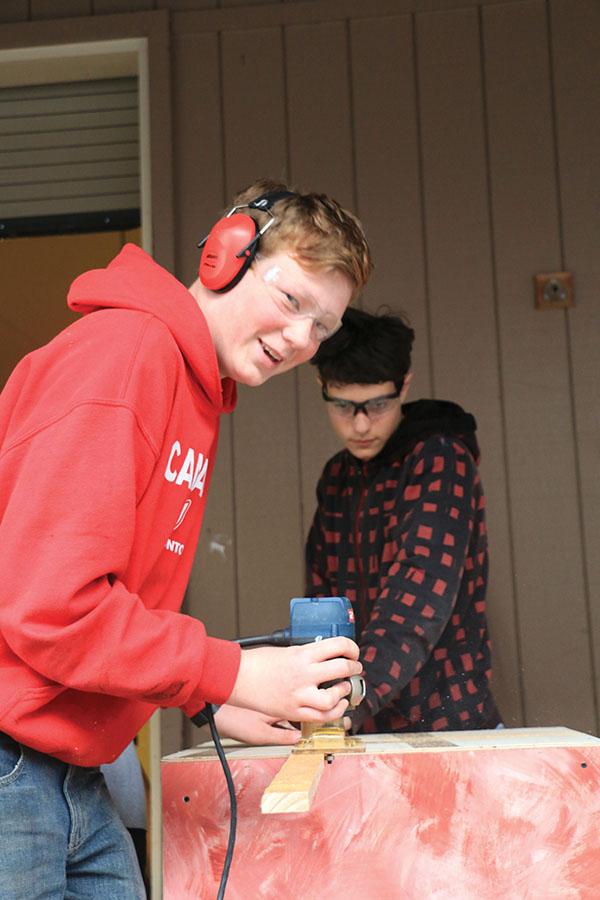Through the humid, stagnant air, tangible excitement builds while actors and actresses rush to don their dancing shoes before joining the rest of the cast stretching on the stage of Palo Alto High School’s Haymarket Theater. Behind the on-stage commotion, if you dare to venture behind the thick velvet curtains, a new world unveils itself.
Drifting in and out of peripheral vision, power cords trail behind colorful skirts and equally colorful hair bobs up and down behind huge sheets of plywood. Playful banter bounces back and forth between students, but they don’t let comfort lead to distraction.
A sea of students hurries back and forth wielding paintbrushes, wrenches and armfuls of costumes. At the outermost boundary of the stage, a wooden staircase leads to two landings. Students flow up both flights carrying heavy equipment. To the right lies the storage area for old props, dubbed “Azkaban.”
A vast pulley system reaches up to the ceiling, controlling the curtains and lights below. The signature “Ethan Cohen ‘13” is painted in dripping blue paint next to a vertical ladder made out of pipes.
Controlling this metropolis of cords and equipment are the stage techs: a group of Paly students charged with the creation of a fictional world for every Paly Theater production — from the hectic opening night to the bittersweet closing.

“Stage techs definitely pride themselves in being the invisible hand that makes all onstage magic happen,” senior stage manager Hannah Nguyen says. “Techies bond over their love and passion for theater, and everyone definitely feels like a part of a really spectacular community.”
In stage tech, organization is key since students must be silently orchestrated behind the curtains. Students are divided into groups: stage, sound, hair and makeup, light, build, props, costumes and scenes.
“Paly Theater is a really different experience than whatever the middle school did before, so all freshmen are encouraged to explore all different aspects,” Nguyen says.
Underclassmen rotate from crew to crew to hone their skills, while upperclassmen stay within their chosen niche. This system enables each student to graduate with knowledge of all the different aspects of stage tech outside the area they specialize in.

Mostly student-run, stage tech teaches students the skills necessary to put a show together.
“It’s generally the upperclassmen’s duty to teach the underclassmen, and thus the cycle continues as a new generation comes in,” says sound crew member and sophomore Edward Park.
Working on the production everyday unifies the techies and creates a tight-knit community.
“There’s something about working toward making something together that really builds community,” says senior lighting supervisor Katherine Craig.
The easy banter and laughter between stage techies after school is the type of comfortable group dynamic that one doesn’t find every day.
“Just as a sports team, the techies ourselves are a team and more so a family,” Park says.
The stage tech community’s bonds go beyond the stage’s parameters.
“Theater has given me a common ground with a truly wonderful group of people who have become my second family,” says junior Charlotte Moffat, a stage manager.
Ultimately, Stage Tech brings an unlikely group of students together across genders, ages and grades.
“It’s brought me people that I have laughed with, cried with and shared unforgettable memories with,” Nguyen says.




